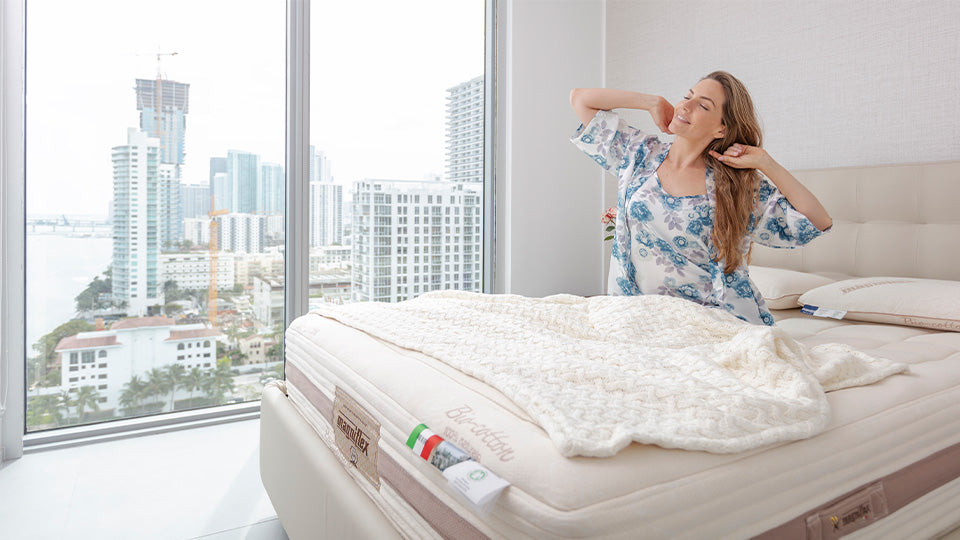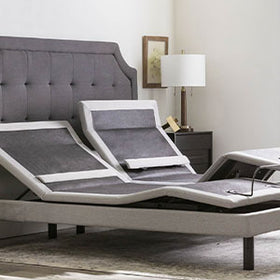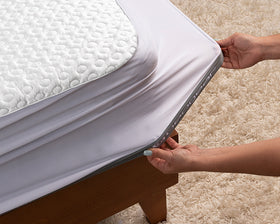888-996-9890

Where Is Your Mattress Made?
Mattress Manufacturing Origins
Purchasing local and American-made products seems to be an important factor for several buyers nowadays. However, there are several things that can come into play when considering in-country mattress manufacturers. Cost, quality, and the environment can all be affected by manufacturing origin. Differences that can be important for consumers.
Made in the USA vs. Imports
As with nearly all manufactured goods, consumers have numerous choices between domestic and imported products. Many Americans believe that buying American-made products can help to support our economy and that it affects quality. Understanding how domestic and imported beds can differ could assist you to make wiser purchasing decisions.
Manufacturing Practices
Different countries and regions have different laws, and these can affect the chemicals used in mattress construction. The US and EU have stricter health and safety standards than other exporting regions. Flammability testing, toxic additive bans, and disallowed manufacturing chemicals are all highly regulated aspects of mattress manufacturing in the United States and in the EU.
However, there is little known about the manufacturing origin and practices of bed-in-a-box companies that may not be set up as a business the same way that established companies in the EU and America are. We don’t know what laws they’re listening to or choosing to ignore and pay a fine for later.
Are the Materials Used Safe?
Organic cotton and wool, natural flame retardants, high-quality steel, and nontoxic foams are the best types of products to be used when you're making a mattress. Completely stable chemicals used during manufacturing won’t off-gas or cause problems with odors in your home. Plus, you want beds that aren't made with dangerous chemicals like formaldehyde, PBDE, phthalates, or heavy metals. One easy way to ensure you bed is safe is to look for third-party certifications, such as Certi-PUR for foam and Oeko-Tex for fibers, which means they don't contain harmful chemicals.
Do You Trust the Manufacturer's Word?
Some off-brand mattresses promote a "buy it, stuck with it" policy. Not all manufacturers fully warranty their beds and several have hidden fees if you do put forth a warranty claim. When purchasing something that will cradle your sleeping form each and every night, be sure that the company selling it is honest, trustworthy, and provides excellent customer service.
How Will Your Mattress Arrive?
Mattresses that hang around warehouses and are shipped from faraway ports have a higher risk of exposure to pests and vermin. Companies dedicated to quality package their mattresses in high-tech materials designed keep out pests but allow the mattress to breathe. Make sure you purchase from a brand that cares about how they make and how they store their mattresses.
Economic & Labor Concerns
Buying US-made products from US companies does support the domestic economy to a degree. US and EU manufacturers also have much stricter labor guidelines designed to protect workers from danger and exploitation such as OSHA standards, minimum wage, and child labor laws. Smaller companies that aren’t as regulated, potentially from far overseas, may not have as ethical of business practices.
Environmental Concerns
When determining whether or not mattress manufacturing origin matters, possible effects on the environment are important for a lot of shoppers, particularly people looking to live a greener lifestyle. The US and EU have stricter laws here as well. Additionally, importing means fossil fuels and potential pollution as well.
Costs
Price, of course, is one of the most important considerations for many when buying a mattress. Generally, imported products are more affordable since manufacturing and labor costs are lower, with the exception of luxury European brands such as Magniflex. However, domestically-produced mattresses have reduced shipping costs, so many brands continue to be fairly competitive with imported lines. And remember, especially inexpensive models from brands that you don’t know may be so cheap because the products used are not of good quality.





